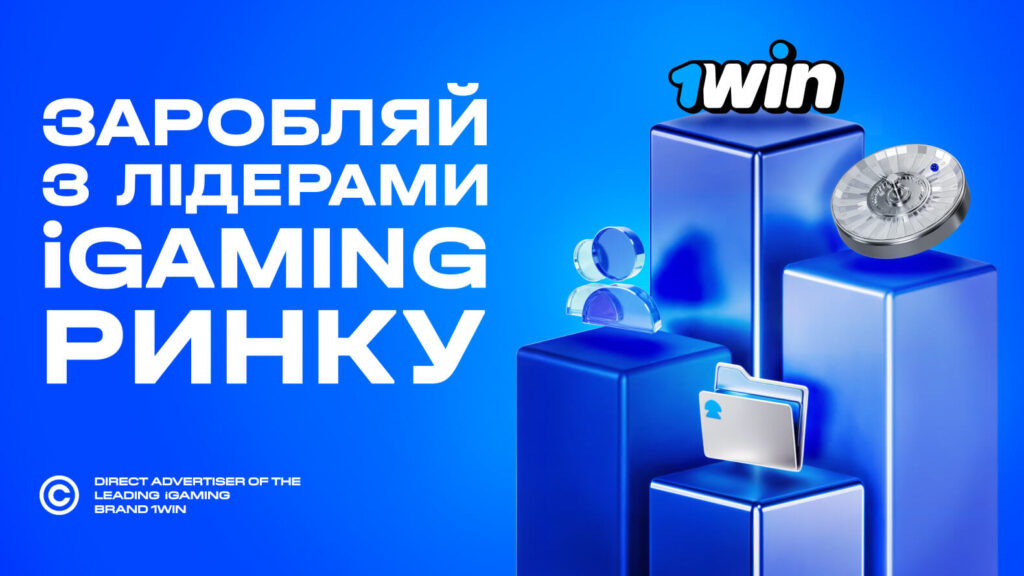Don't miss interesting news

Young top managers often make the same mistakes, which leads to problems in their companies. However, thanks to the speech of Roman Ostrovsky, CBDO Global 1win, we now have a clear understanding of how to effectively manage an iGaming business and what actions to avoid.
Any business is a complex organism, all the processes and nuances of which are sometimes unknown even to its founder. The development of this organism requires great professionalism and dedication, as there are no trifles in this business: even a small mistake can lead to huge losses, reputational or financial.
In the fairly young iGaming industry, the rules of the game are even more blurred. After all, even companies that we consider giants often do not have even a few decades on the market. Nevertheless, people who have built iGaming holdings know more about this vertical than anyone else. Roman Ostrovsky, CBDO of Global 1win, is one of them. He shared his business expertise as part of his presentation at 2024
We don’t know if the 1win story was a “survivor’s mistake”, so we won’t talk about what a top manager of an iGaming company should do. However, after listening carefully to Roman’s report, we clearly understood what exactly should not be done and compiled a list of “harmful advice” for C-level employees in the gambling industry.
Your company is a mechanism for making money, nothing more and nothing less. Treat it as such; after all, no one puts air fresheners or hangs garlands near an ATM. Your employees are there to bring you money, and you are there to collect it. Don’t complicate this great commodity-market relationship.
Don’t worry about some abstract “atmosphere” in the company: an employee is either effective or not. In the latter case, they should be replaced like a broken part and a new person should be hired. Everyone should understand that there are no irreplaceable people, and this knowledge in itself is a great motivation to stay focused on the job.
“70% of the key people in our company were hired before 2020. We have a huge share of top management – these are people who have been raised internally. This has created a unique friendly atmosphere in the team, which pushes everyone to realize that they are not working for their uncle, but developing their own business. This approach results in much higher performance during work. The company’s mindset is the mindset of each employee, and it determines the overall efficiency.”
Roman Ostrovsky, CBDO Global 1win
Managing a team, department, or an entire company is extremely tiring, and burnout is the main enemy of any effective manager. After a productive day at work, turn off notifications in the CRM system, block work chats, and don’t open the door to anyone but the food delivery guy. You deserve it.
The same goes for vacations. No matter how important you are in the decision-making process or how unique your expertise is, you are only your own boss for 28 days a year. Instruct your deputy and turn off your phone – with any luck, your employees will figure it out. You are on the beach, not in the office.
“If you are a top manager, you have to exclude the very concept of work-life balance. Because those who operate with this concept are swallowing dust from those who do not have it. They are a priori less effective: while their people turn off their phones on vacation, ours will be involved in the processes. A personal example is very important here: if employees see that it’s okay for the boss to leave and disappear, they realize that this is the norm in the company. Believe me, they will do the same.”
Roman Ostrovsky, CBDO Global 1win
You and your team have done a great job of building and perfecting all the processes. Now everything is running like clockwork, all positions are closed, and everyone knows their stuff. This means only one thing: you can exhale and enjoy the well-oiled machine. Your system is good enough to be considered perfect.
The company’s “old-timers” know it well, and everyone has long been accustomed to their shortcomings. So what if they arrive at two and leave at five in the evening, and the big important offices are filled with people: one for each “abbreviated” position. All duties are fulfilled and it’s great. If only everyone knew how to recruit a team like you do.
“Think about how often new blood comes to you. If you don’t feel an acute staff shortage at the C-level, your business is most likely stagnating, and you need to pay attention to it. It is also necessary to identify the weak links that are working. Yes, they may be invisible within a large company, but they will dismoralize others with their attitude to work. These are the cancer cells of the team, and they need to be removed.”
Roman Ostrovsky, CBDO Global 1win
You are at the top of the food chain for a reason. There are so many people in the industry, but you are the one who runs a good half of the processes in your company. The fact is that you are the best at what you do, and without you, everything would fall apart. Your opinion should be the law for all junior employees and nothing else.
All these analysts and other operators are good in only one situation: when you ask their opinion. It shouldn’t be too often, otherwise they’ll think that their work determines the course of the company. But in reality, no amount of analytics can compare to the flair and business genius of someone at your level.
“The best form of management is a meritocracy in a company. When you have only one person in your team making key decisions, you are limited to the outlook and expertise of that person. You need to invest in an analytics and management system that will completely eliminate human error; a system where every decision is made by people who are competent in the matter.”
Roman Ostrovsky, CBDO Global 1win
Let’s return to the good old truth: there are no irreplaceable people. In your company, a huge money-making machine, each employee is just another cog. And what do you do with a cog that breaks or just misbehaves? They throw it away, and then buy a shiny new one and put it in.
It doesn’t matter what kind of reputation an employee has. If he fails or can’t cope with an important task, he’s clearly served his time: your mechanism can’t afford downtime due to someone’s personal or professional problems. Fire him immediately and send recruiters to look for a replacement.
“Yes, the staff needs to be updated, but updated wisely. If you have an old employee with a credit of trust, but he or she is categorically not doing a good job, firing and replacing him or her with a new person is not the answer. It’s important to talk to them and figure out what’s going on. You need to understand the strengths and weaknesses of your employees to give them what they are good at, and then they will shine. Firing is a last resort when it comes to an experienced employee.”
Roman Ostrovsky, CBDO Global 1win
The back office is the heart of any beating business, and every mistake at this level can be costly. You have already worked your way up in the company from the bottom and understand how its internal processes work like no one else, so you have a heavy burden to control the operating system and decision-making.
All processes must be built flawlessly, and you will take care of it. No decision will pass you by, because you are the most experienced person at most meetings. The most important task is to reduce the likelihood of mistakes on the part of employees, and it doesn’t matter what percentage of your work schedule it takes.
“A top manager is a visionary role. If you are too much immersed in the operating system, you will become a bottleneck in your business. Employees need to be given freedom and responsibility, the ability to make decisions and make mistakes. This will not only free up your schedule for more global tasks and growth points, but also allow you to grow strong and self-sufficient specialists who will be able to take over some of your workload in the future.”
Roman Ostrovsky, CBDO Global 1win
Given how deeply you are involved in all processes in the company, if you followed the previous tips, you don’t have much time for growth points. However, new projects and ideas do arise and need to be implemented without compromising the core business, so you shouldn’t be scattering your attention on odious plans.
Each project serves to close a specific goal or solve an existing problem, and you should focus on that. Leave the dreams to hopeless romantics: you are a top manager and you have to work effectively today. You will deal with the problems and tasks of tomorrow tomorrow, as you always have.
“An advertiser can simply do in-house buying. But if it builds an HR brand and starts recruiting strong staff to the in-house team, without limiting them to external offers, it will be able to keep its finger on the pulse and see the market wider than its own product. This department will become an aggregator of expertise for the main brand. The top management should be “above” the processes and see the growth prospects of any idea, not the immediate benefit.”
Roman Ostrovsky, CBDO Global 1win
What is the most common problem of ambitious people and companies? They try to become everything at once, to succeed in several endeavors simultaneously. But as a result, they spend their energy, time, and resources on things that are not related to their core business, and remain far behind those who focused on their main goal.
You shouldn’t make the same mistake. The so-called “horizontal expansion” is the right way to waste resources that could have benefited the main brand. Focus on what you do best and don’t spread your attention to secondary projects. It’s not worth it.
“A well-established operating system makes it easy to connect new products, which saves a huge amount of time and resources, and is necessary for horizontal expansion. But we do not sell courses for mothers on maternity leave; we only do things that will somehow strengthen the main brand, whether it is a payment aggregator or a gameplay provider. They can also be used as a cashgen, and as an aggregator of expertise.”
Roman Ostrovsky, CBDO Global 1win
